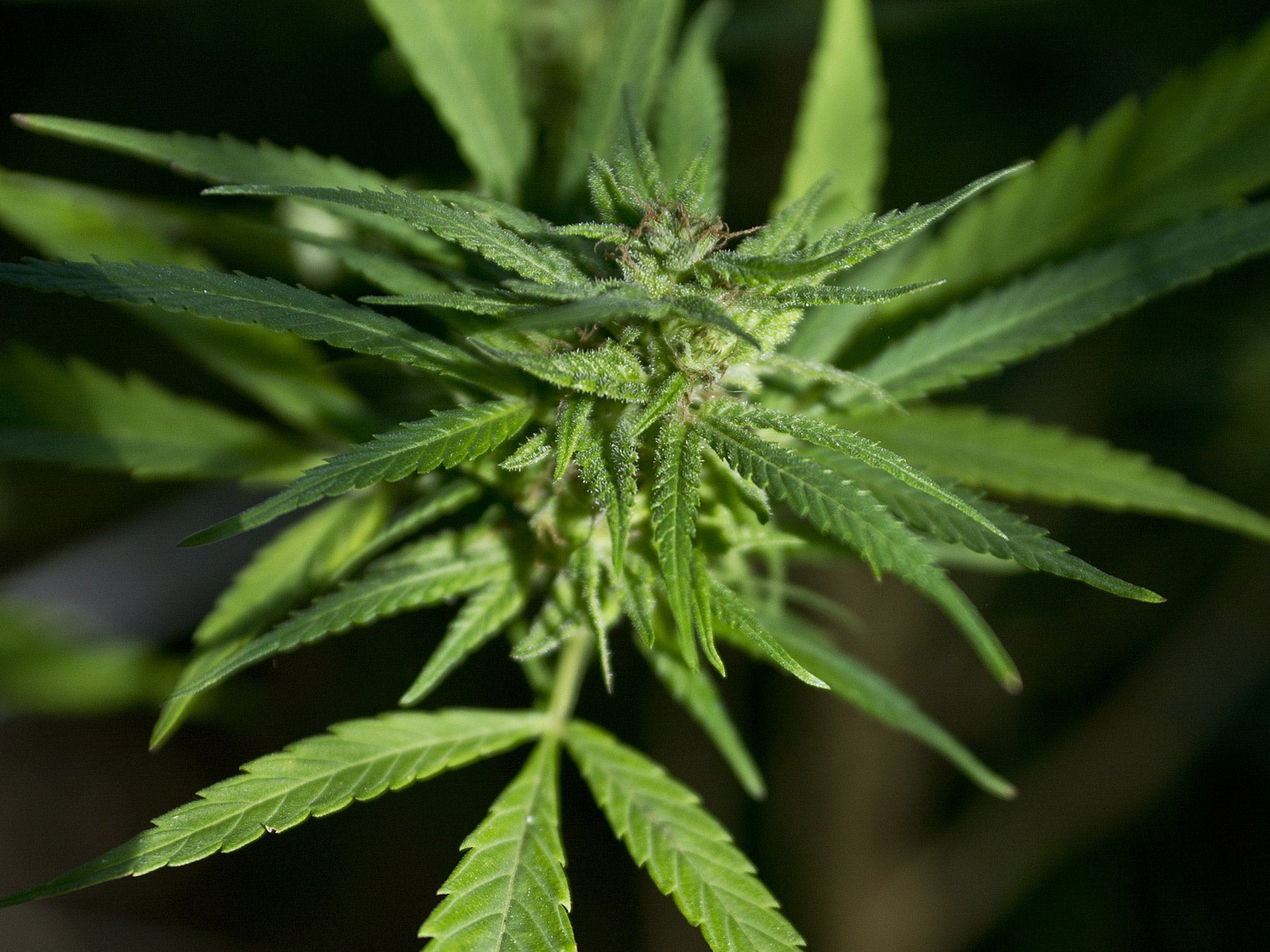Scientists reveal how THC – found in cannabis – ‘could slow cancer tumour growth’
New study from University of East Anglia reveals important details of marijuana’s ‘poorly understood’ anti-cancer properties

Your support helps us to tell the story
From reproductive rights to climate change to Big Tech, The Independent is on the ground when the story is developing. Whether it's investigating the financials of Elon Musk's pro-Trump PAC or producing our latest documentary, 'The A Word', which shines a light on the American women fighting for reproductive rights, we know how important it is to parse out the facts from the messaging.
At such a critical moment in US history, we need reporters on the ground. Your donation allows us to keep sending journalists to speak to both sides of the story.
The Independent is trusted by Americans across the entire political spectrum. And unlike many other quality news outlets, we choose not to lock Americans out of our reporting and analysis with paywalls. We believe quality journalism should be available to everyone, paid for by those who can afford it.
Your support makes all the difference.Scientists at a British university have made a major breakthrough in revealing how cannabis could be used as a treatment to prevent the growth of cancer.
Research carried out by a team from the University of East Anglia (UEA) has shed light on the still “poorly understood” theory that an ingredient in marijuana has anti-cancer properties.
There have long been reports that the main psychoactive ingredient in cannabis – Tetrahydrocannabinol or THC – has been shown to have success in combatting the growth of cancerous cells, but Cancer Research UK says we need more research before we will know whether the substance can really help treating the disease.
By injecting THC into laboratory mice bearing human cancer cells, scientists were able to identify for the first time two specific receptors that are responsible for the compound’s disease-fighting effects.
The new study, published in the Journal of Biological Chemistry, could be a big boost for attempts to create a synthetic substitute for cannabis that can fight cancer in a targeted and safe way.
Dr Peter McCormick, from UEA’s school of pharmacy, said: “Our findings help explain some of the well-known but still poorly understood effects of THC at low and high doses on tumour growth.
“There has been a great deal of interest in understanding the molecular mechanisms behind how marijuana, and specifically THC, influence cancer pathology.
“By identifying the receptors involved we have provided an important step towards the future development of therapeutics that can take advantage of the interactions we have discovered to reduce tumour growth.”
Dr McCormick nonetheless insisted that studies like this should not encourage cancer patients to self-medicate.
He said: “Our research uses an isolated chemical compound and using the correct concentration is vital. Cancer patients should not use cannabis to self-medicate, but I hope that our research will lead to a safe synthetic equivalent being available in the future.”
Join our commenting forum
Join thought-provoking conversations, follow other Independent readers and see their replies
Comments